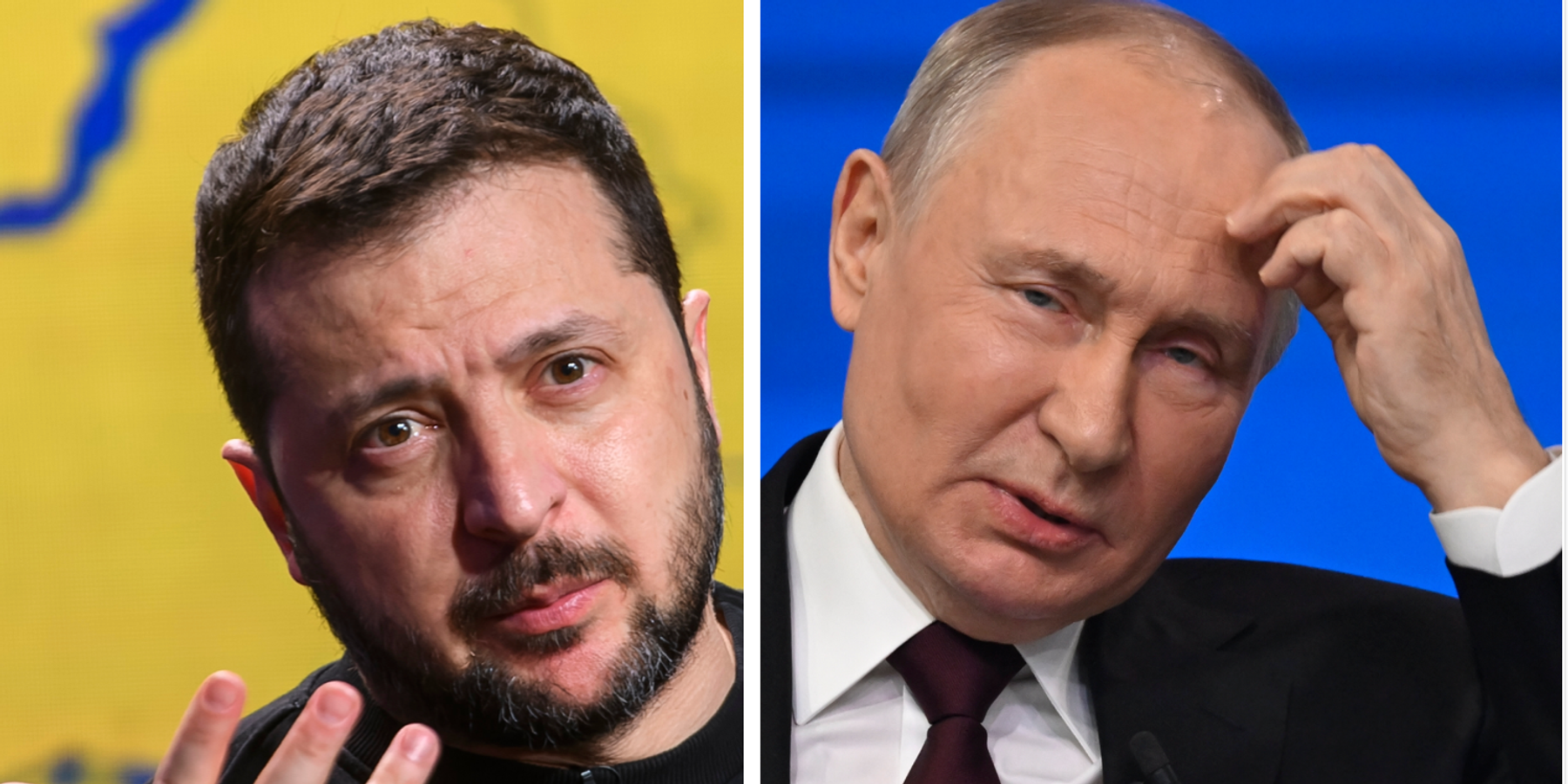Direct talks between senior Ukrainian and Russian representatives, if they do take place in Istanbul on Thursday, will be a real step forward and a significant achievement by the Trump administration.
It is worth remembering that only three months ago the Ukrainian government was still rejecting even the idea of talks with the Putin administration as illegal, and demanding prior Russian withdrawal from all the occupied areas of Ukraine as a precondition for negotiations.
Putin’s apparent rejection of Zelensky’s challenge to a face to face meeting is a disappointment, but not a crucial setback. It is very rare for real progress in peace talks to be made in meetings between leaders themselves, and the Russians have some reason to see this as a maneuver, or stunt, by Zelensky to gain Trump’s favor rather than a serious proposal.
Normally, before leaders meet there have to be long and detailed negotiations by officials to lay the groundwork for agreement. Hopefully, the Istanbul meeting of officials proposed by Moscow will advance that process, whereas a public shouting-match between Putin and Zelensky could set it back.
The Ukrainian and European governments have stated that Moscow’s rejection of a 30-day ceasefire shows that “Putin is not interested in peace”, but this is disingenuous. Russia’s ability to advance — even if slowly — on the battlefield is Moscow’s main source of leverage in negotiations, and it is not going to give that up unless substantial agreement has already been reached.
Nor, and for the same reason, were Western countries ever going to agree to Russia’s demand for a complete and permanent end to military supplies to Ukraine as the precondition of a ceasefire. We have to accept that while the talks continue, so will the fighting. That should be a spur to efforts to move as quickly as possible to a comprehensive settlement.
And a comprehensive settlement is what we should be aiming at. Even if Russia could be brought to agree to a long-term ceasefire, absent a settlement, such a ceasefire would resemble that in the Donbas from 2014-22: deeply unstable, constantly interrupted by clashes and exchanges of fire, and at permanent risk of collapsing back into full scale war.
This situation would make Ukraine’s economic development and progress towards the European Union virtually impossible, both because it would prevent Western investment and because it would mean that Ukraine remains a highly militarized and semi-authoritarian society permanently mobilized for war.
It would also make it far more difficult for the U.S. to reduce its military presence in Europe so as to concentrate resources elsewhere - which is indeed probably a key motive for the European approach.
Trump’s threat to “walk away” from the peace process has succeeded in bringing both sides to the negotiating table, but they agreed only so as to avoid being blamed by him for refusal. On key issues, the Russian and Ukrainian positions remain quite far apart, and it will be a miracle if one round of direct talks in Istanbul is able to bring them together. Continued U.S. engagement in the peace process therefore seems essential.
For Washington’s involvement to be effective, it will have to set out concrete and detailed conditions for agreement and bring both pressure and incentives to bear on both sides to accept them. A U.S. incentive to the Ukrainian side has already been established in the form of the the minerals deal and its promise that long-term American economic engagement in Ukraine will also ensure Washignton’s interest in maintaining Ukrainian security.
For Russia, the Trump administration has a huge potential incentive in the form of a new U.S.-Russian relationship, and an end to Washington pressure on what the Russians see as their vital interests.
Some of the elements of an agreement between Ukraine and Russia were laid down at the talks in Istanbul in March 2022, and are still applicable. Conditions meeting the vital interests of both sides, and on which the U.S. could help them to agree, include the following: that the ceasefire line runs where the battle line eventually runs, and neither side can be asked to withdraw further; that both sides should promise not to try to change the ceasefire line through force, subversion or economic pressure; that the issue or the legal status of the occupied territory should be left for future negotiation and that NATO membership for Ukraine should be excluded, but that Ukraine should be guaranteed the right to seek membership of the EU.
Conditions also included that no NATO troops should be deployed in Ukraine, and any peacekeeping force should be from neutral countries under UN auspices; that the UN should guarantee the sovereignty and independence of Ukraine; that both sides should guarantee linguistic and cultural rights of minorities; that Western sanctions against Russia should be suspended, but with a “snap-back” clause guaranteeing that they would automatically resume in the event of new Russian aggression; that any limits on Ukrainian armaments should be restricted to long-range missiles, and that the West should be able to go on arming Ukraine for defense.
A settlement along these lines would leave both sides unhappy — but hopefully, not so unhappy that they would be willing to take on dreadful the risks and costs of a return to war. We may hope that — to adapt President Lincoln’s words — the “better angels” of the Russian and Ukrainian negotiators’ natures will incline them to such compromises at their talks in Istanbul this week. If not, and however incongruous this partnership may seem to many, it will be for the Trump administration to give the angels a helping wing.
- US-Russia talks: The rubber finally hits the road ›
- Did the West deliberately prolong the Ukraine war? ›
- Istanbul 2.0: know when to hold 'em, know when to fold 'em | Responsible Statecraft ›
- Democrat, GOP Reps: Putin is tooling Trump around | Responsible Statecraft ›
















